ATTACKS AGAINST MEDIA WORKERS IN RUSSIA IN 2021-2023
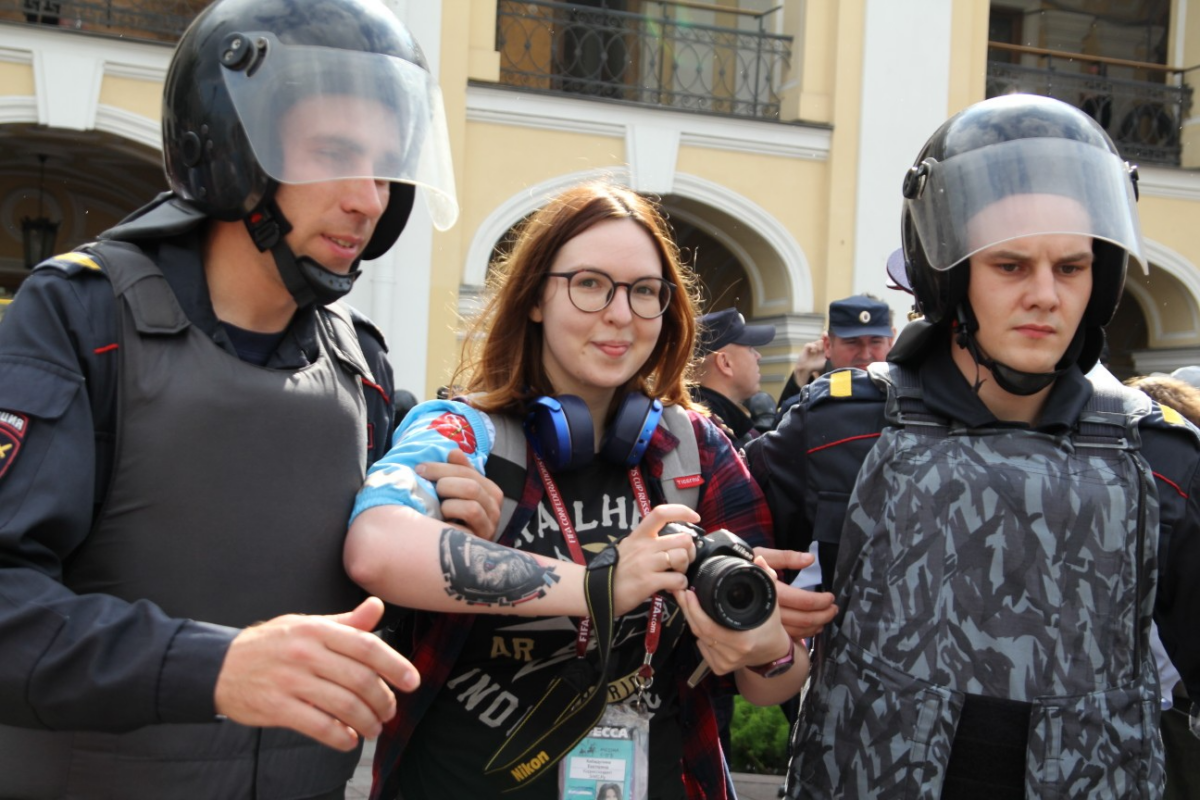
Today, JFJ released its report: Attacks Against Media Workers in Russia in 2021-2023. The report analyses 5,262 cases of attacks/threats via physical, cyber and judicial means conducted against professional and civilian media workers and editorial offices of traditional and online media, as well as against Russian journalists abroad. This number constitutes 70% of all attacks against media workers in Russia recorded since 2017. 92% of all incidents were initiated by representatives of authorities. 2022 was a record year that saw 2034 cases of journalists persecuted under repressive laws, most often under the pretext of discrediting or disseminating “fakes” about the Russian Army, participation in illegal public gatherings, and violation in operating as a foreign agent. As of today, 51 media workers, including 10 female journalists, are either awaiting sentencing in detention or serving prison terms of up to 25 years. In addition to that, 13 citizen journalists from Crimea are serving time in Russian prison camps.
The most frequently targeted media included RFE/RL/s Russian service, Echo of Moscow, TV Rain, Novaya Gazeta and The Insider. Bloggers and journalists Mikhail Alferov, Sergey Veselov, Maria Ponomarenko, Dmitry Ivanov, Sergey Smirnov, Denis Kamalyagin and Fyodor Orlov were among the most frequently targeted media workers during this period.
Even though the majority of independent media outlets and workers have either quit journalism or have been forced in exile, they continue to be targeted abroad: surveillance and harassment were reported by Irina Dolinina andAlesya Marokhovskaya, Galina Timchenko, Yevgeny Erlikh, Yevgeny Pavlov, Maria Epifanova, while Elena Kostyuchenko and Irina Babloyan suspected poisoning.
TROUBLE WITH THE TRUTH PODCAST
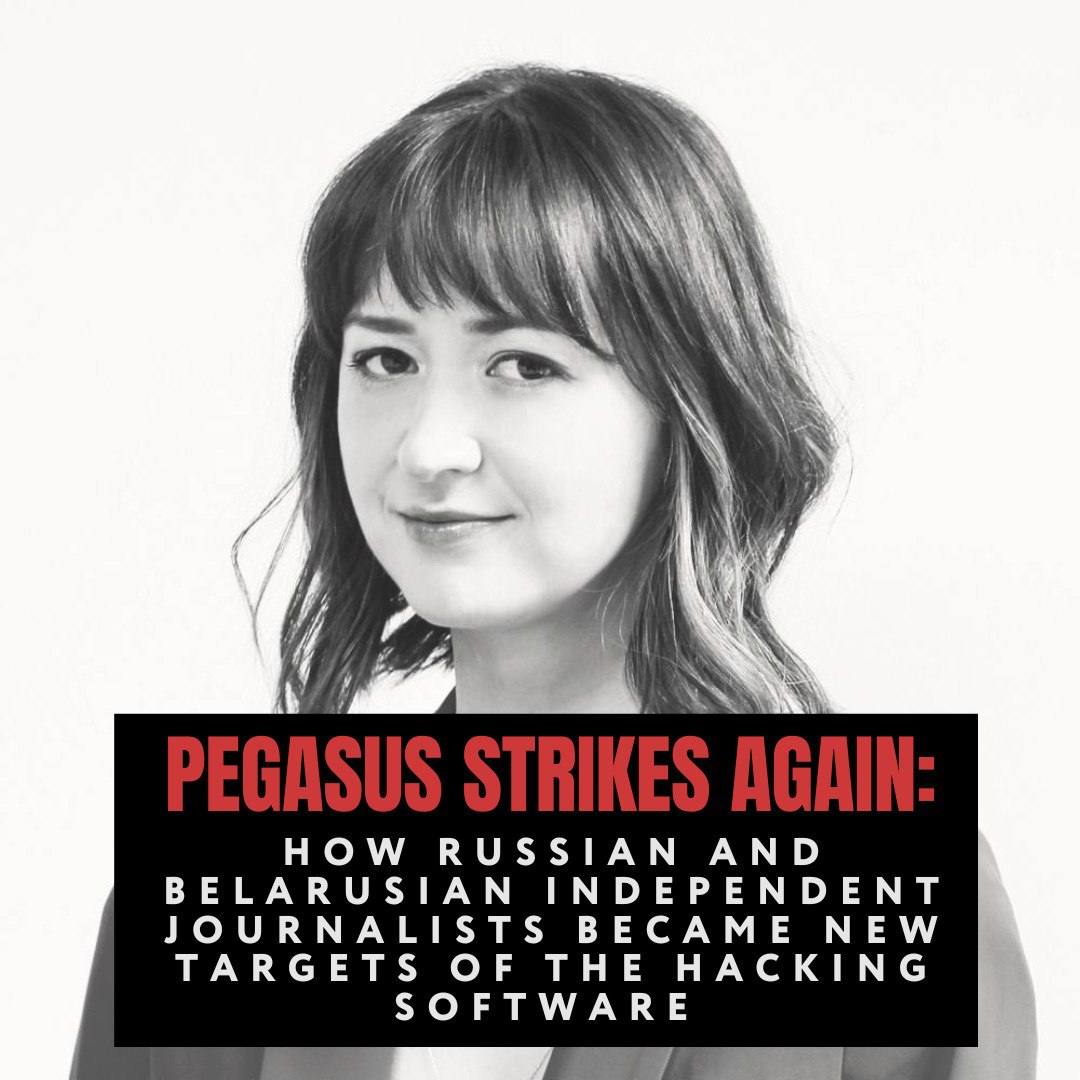
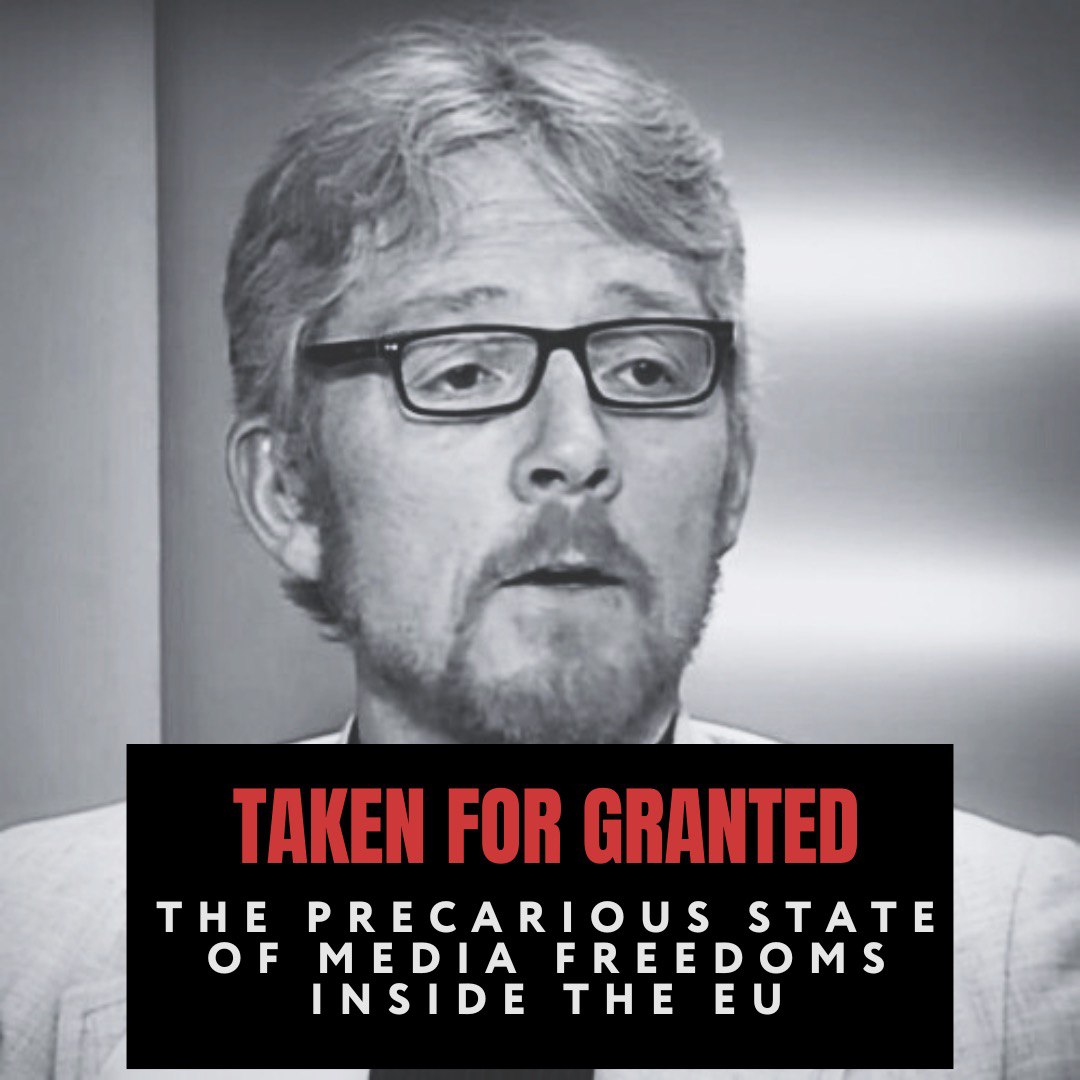
Listen to two new episodes of Trouble with the Truth by Lana Estemirova:
In the first episode, Lana discusses the declining state of media freedoms in the EU with Oliver Money-Kyrle, the Head of Europe Advocacy and Programmes at the International Press Institute. They talk about the gap between the values projected by European institutions and the reality faced by independent journalists—from media capture and unregulated AI to malicious lawsuits and the dangerous anti-press rhetoric from right-wing politicians. Most importantly, they discuss what’s being done on the individual and institutional level to combat these challenges.
In the second episode, Lana talks to Natalia Krapiva, the Senior Tech-Legal Counsel at Access Now about the latest targets of Pegasus attacks. Among them: the CEO of Novaya Gazeta Maria Epifanova, journalists Evgeny Pavlov and Evgeny Erlikh, Belarusian activist Andrei Sannikov, and the editor-in-chief of independent Belarusian media website Charter97.org – Natallia Radzina. They discuss what makes Pegasus so hard to identify and who could be behind it – while Russian and Belarusian authorities are the most obvious suspects, the truth is more complex. Natalia shares some useful advice on how journalists can protect themselves from spyware and what steps they should take if they have been hacked.
EVENTS AND ADVOCACY
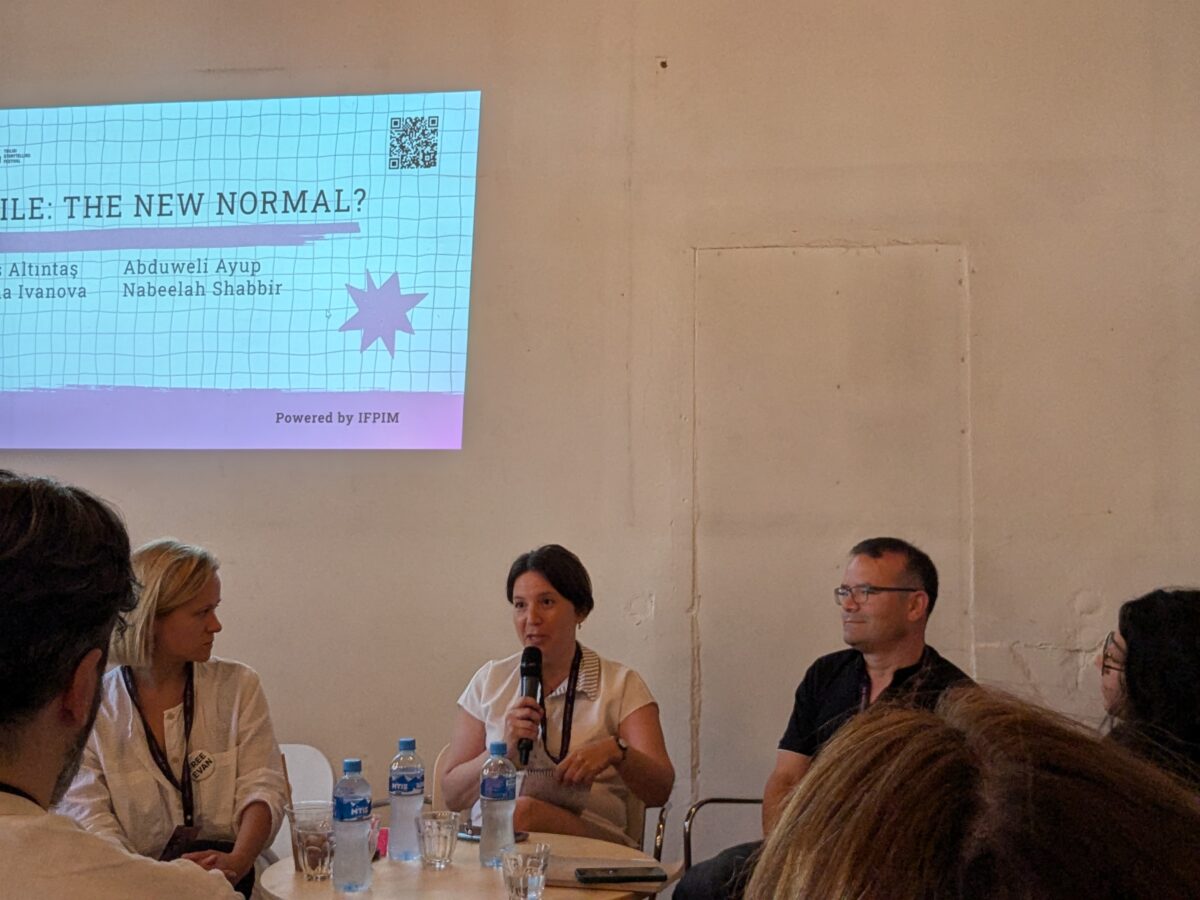
- The Black Snow documentary, supported by the JFJ Investigative Grant Programme, directed by American journalist and filmmaker Alina Simone and produced by Kirstine Barfod, premiered in Australia and won the Sustainable Future Award at the Sydney Film Festival held from June 5 to 16, 2024.
- On June 21, the documentary Our Wonderful Past, supported by the JFJ Investigative Grant Programme, was presented during the ZEG Tbilisi Storytelling Festival, organised by Coda Story and Impact Hub Tbilisi. The documentary reveals the chilling reality of media persecution in Russia, Turkey and Belarus and the fight of journalists who risk their lives to uphold the truth. The screening was followed by a Q&A with the director, Barış Altıntaş. On June 23, Altıntaş also spoke on the panel titled Exile: The New Normal. Panelists talked about the challenges and the future of journalists reporting in exile while authoritarianism gains momentum across the globe and the impact of digital media on exiled journalism.
- On June 26-27, JFJ’s Director Maria Ordzhonikidze participated in the Brunel Centre for Intelligence and Security Studies (BCISS) online conference Knock in the Night: Intelligence, Security and Special Services in the Authoritarian States. Ms. Ordzhonikidze’s presentation for the conference analysed active measures the state employs against the opposing voices in Russia and abroad.
- On July 7, the Fundación para la Libertad de Prensa (FLIP) will showcase the documentary Sin control: periodismo bajo vigilancia during the Festival Gabo in Bogota, Colombia. The documentary has been supported by JFJ Investigative Grant Programme and was earlier presented during the International Journalism Festival in Perugia.
REPORTS
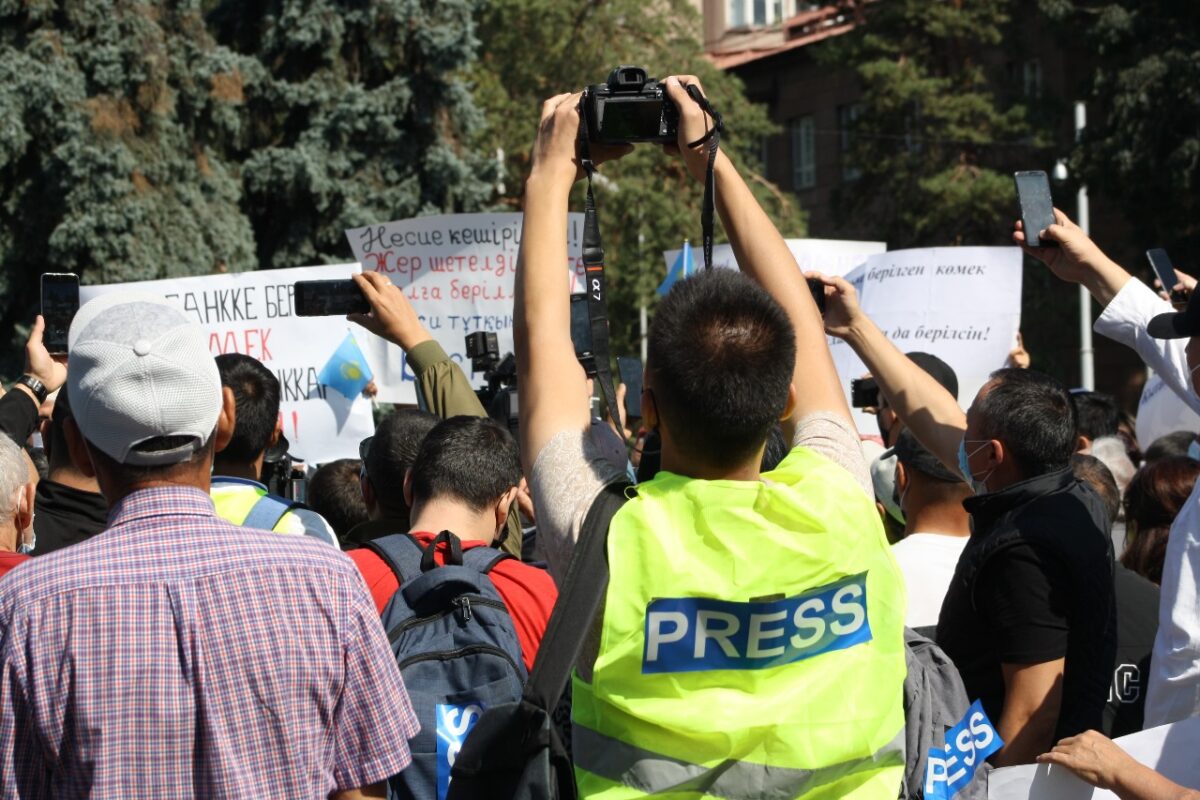
In Kazakhstan, 838 attacks/threats against professional and citizen media workers, activists, editorial offices of traditional and online media outlets were documented in 2022-2023. 2022 saw a record number of incidents due to the armed riots in January. Attacks via judicial and/or economic means remained the main method of exerting pressure against media workers, bloggers and online activists. In 2023, the total number of incidents decreased by 20% compared to 2022.
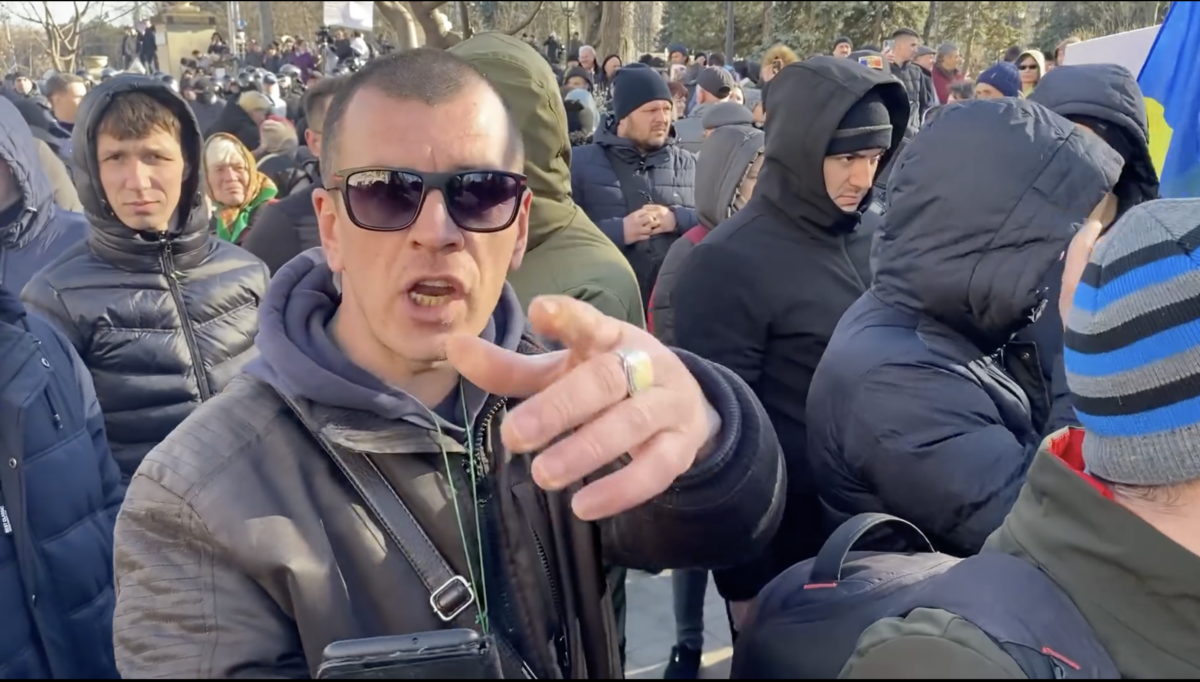
In Moldova, 43 cases of attacks/threats against media workers took place in 2023. The number of attacks on journalists in Moldova has been decreasing from 68 cases recorded in 2021 to 56 in 2022. 77% of attacks and threats were non-physical and/or cyber. Since 2017, these types of attacks remain the primary pressure method against the country’s media workers. In contrast to previous years, when the main perpetrators of such attacks were government officials, almost half of recorded incidents in 2023 were perpetrated by unknown individuals.
ORKHAN DZHEMAL MEDIA SAFETY ACADEMY
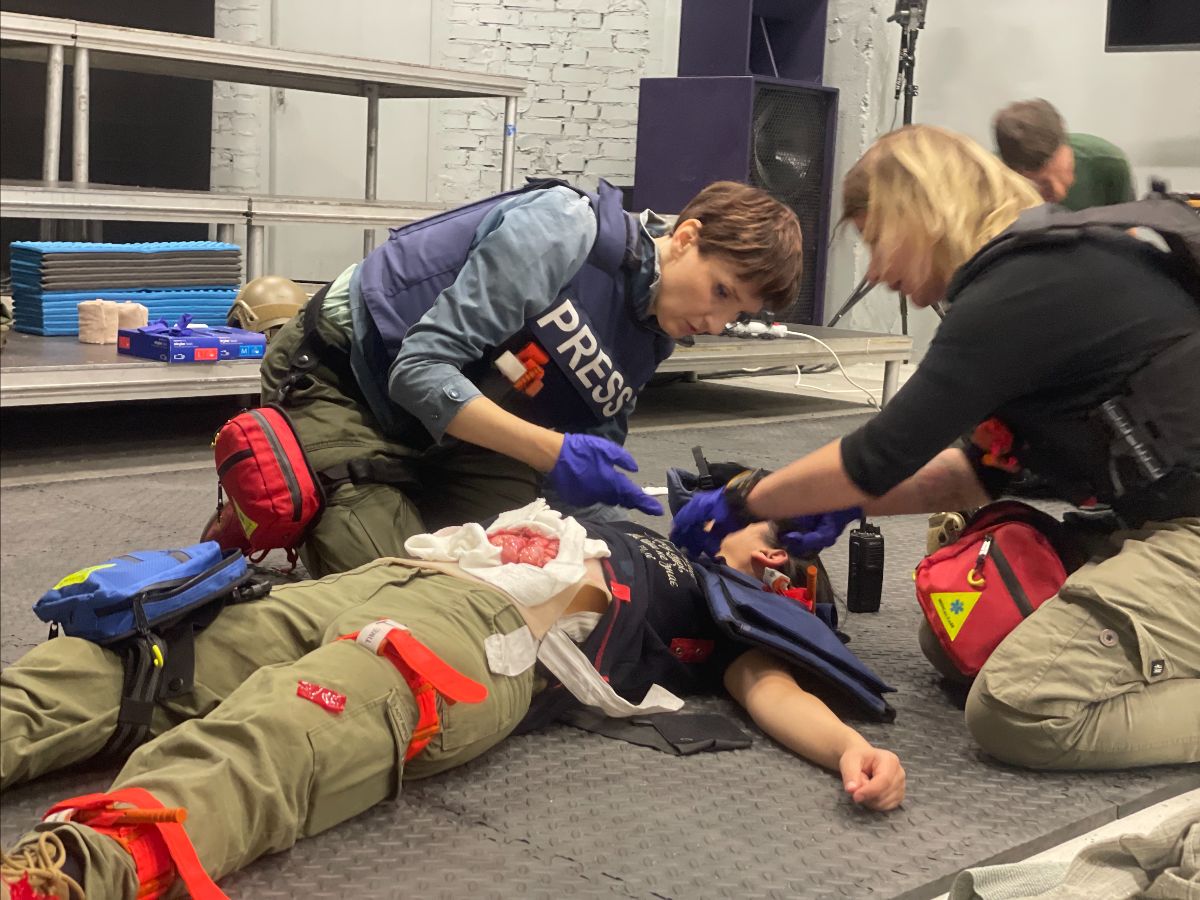
In Kyiv, Ukraine, during May and June 2024, the 2402 Foundation conducted five Hostile Environment First Aid Trainings (HEFAT) tailored for Ukrainian journalists, international journalists operating in Ukraine, and media personnel. A total of 43 media workers completed the HEFAT training during this period. One training, aimed at equipping journalists with essential skills for reporting in conflict zones, was held in Kharkiv, a front-line city located 40 kilometres from the Russian border.
2402 Foundation also provided complimentary first aid kits to all training participants in response to high demand, demonstrating a commitment to support journalists in challenging environments.
2404 Foundation launched a public campaign to raise funds for tactical First Aid Kits for journalists in Ukraine. Donations can be made through the 2402 Foundation website or the Patreon platform.
In June, Orkhan Dzhemal Media Safety Academy conducted a three-day psychological retreat in Turkey for a group of independent Kyrgyz media workers. During the retreat, participants studied the scientific approach to meditative and mindfulness practices and acquired various tools for dealing with continuing stress and professional burnout. They highly appreciated the opportunity to meet in person, share their problems and difficulties, support each other, and create new professional collaborations.
Also in June, the Academy organised a tailored risk assessment and mitigation webinar for a major Russian investigative media outlet currently operating in exile.
If you are a media worker and require safety training of any kind, please do not hesitate to write a request to academy@jfj.fund.
